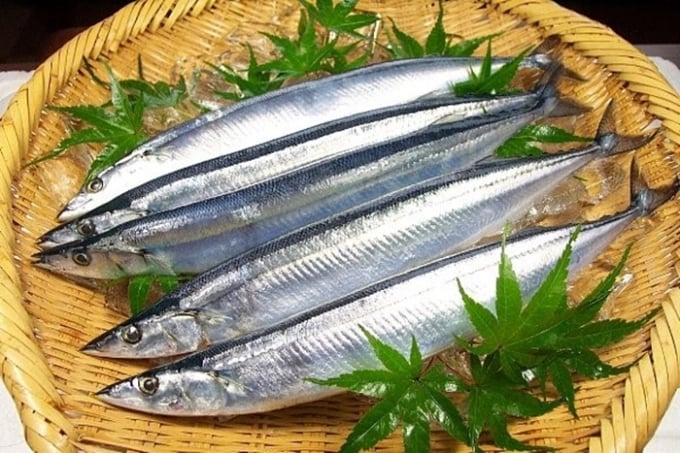May 17, 2025 | 23:03 GMT +7
May 17, 2025 | 23:03 GMT +7
Hotline: 0913.378.918
May 17, 2025 | 23:03 GMT +7
Hotline: 0913.378.918

Cololabis Saira exported to Japan will require a catch certificate. Photo: TL.
The Directorate of Fisheries just sent an official letter to Vietnam Association of Seafood Exporters and Producers (VASEP) about the application of a seafood catch certificate in the Japanese market.
The official dispatch declared that according to the announcement from the Japanese Embassy in Vietnam, the Japanese competent authority will apply the requirement of a catch certificate for 4 species: Squid and Cuttlefish; Cololabis Saira (Pacific saury, Cololabis spp.); mackerel (Mackerel, Scomber spp) and Herring (Sardine, Sardinops spp) when imported into Japan.
Japan will apply the above regulation starting from December 1, 2022.
Japan is the second-largest market for Vietnamese seafood. In 2021, seafood exports to Japan reached over $1.3 billion, accounting for 14.9% of the total seafood export value.
Over the first two months of this year, seafood exports to Japan reached $210 million, up 16% over the same session in 2021.
Translated by Hoang Duy

(VAN) In the face of counterfeit and imitation products, Khanh Hoa Salanganes Nest Company hopes for the prompt completion of the legal framework, strict enforcement against violations, and protection of the bird’s nest brand.

(VAN) Japan's efforts to lower the price of rice through the release of its stockpile may finally be making some progress, albeit at a snail's pace.

(VAN) U.S. tariffs are not only a 'shock', but also an opportunity for Vietnamese businesses to renew their mindset toward comprehensive development.

(VAN) As Bac Giang lychee enters the harvest season, Minister Do Duc Duy expects that the fruit will contribute greatly to agricultural exports due to standardized production and deep processing.

(VAN) Consumers have shown a preference for free-range eggs, but those farming systems are more vulnerable to biosecurity risks like bird flu.
/2025/05/09/5701-1-184335_301.jpg)
(VAN) Vietnam’s eel exports nearly doubled thanks to a mud-free farming model, opening up new prospects while still facing numerous barriers related to international standards.

(VAN) Minister Do Duc Duy warned that if production is not professionalized and supply chains are not transparent, the U.S. market could become a growth bottleneck.